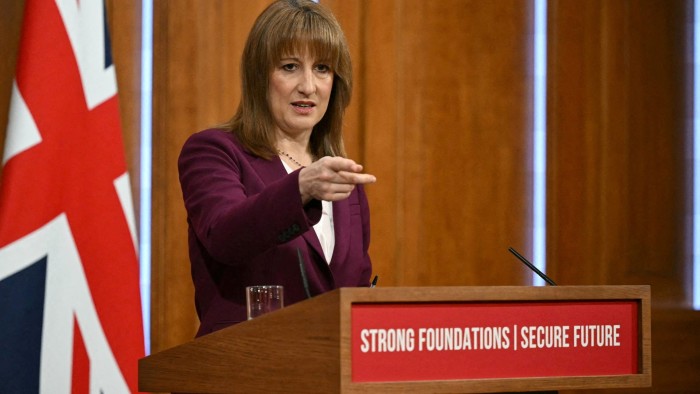Unlock the Editor’s Digest for free
Roula Khalaf, Editor of the FT, selects her favourite stories in this weekly newsletter.
Rachel Reeves is drawing up a £2bn raid on UK retirement savings by reducing tax benefits from salary sacrifice pension schemes ahead of the Budget later this month.
The policy has been lined up as part of the chancellor’s attempt to raise taxes to fill a big hole in the public finances — estimated at up to £30bn — which has been in part caused by expected productivity downgrades by the Office for Budget Responsibility.
The fresh raid on pensions will prompt a backlash from those seeking to build up savings for their retirement and will also add to employer costs, experts warned on Friday night.
Government figures sought to quash separate speculation that Reeves could cut tax-free pension lump-sum withdrawals, currently allowed on up to 25 per cent of a total pension pot up to a maximum of £268,275.
Some investors have reported that people have been pulling money out of their pensions in case the chancellor carried out a raid on that perk.
However, government figures confirmed that Reeves is drawing up a raid on salary sacrifice schemes, first reported in The Times on Friday.
There is currently no limit on how much money an employee can put into their salary sacrifice pension scheme before they are taxed.
But Reeves is set to introduce a new threshold of £2,000 which can be put towards such a scheme, above which it will incur national insurance payments at the usual rates — 8 per cent on salaries under £50,270 and 2 per cent on income above that.
Steve Webb, partner at pension consultants LCP, told the Financial Times: “Salary sacrifice is used as a way of reducing the cost to employers of providing decent pensions.
“Coming on top of last year’s hike in employer NICs, capping salary sacrifice will further increase employer costs and may well result in employers reconsidering the generosity of their pension offer.
“At a time when millions are not saving enough, this is a backward step,” he added.
Companies could also lose the tax break that incentivises them to fund employer pension contributions. At present they do not pay employer NICs — usually 15 per cent — on the proportion of wages that go into pensions, an exemption that is also set to be limited under Reeves’ plan.
The changes were mooted earlier this year in a consultation by HM Revenue & Customs, which published a report called “Understanding the Attitudes and Behaviours of Employers towards Salary Sacrifice for Pensions”.
That report set out three potential scenarios that the Treasury could adopt: removing the NI exemption for employers and employees altogether; removing the NI exemption for employers and employees and the income tax exemption for employees on the salary sacrificed; or removing the NI exemption but only on salaries sacrificed above a £2,000 threshold.
The third option — which Reeves has chosen — was “viewed most favourably” by employers consulted by HMRC, it said in its May report.
The tax agency said it would mean a worker earning £35,000 who had sacrificed 5 per cent of their salary paying no additional NICs.
Someone earning £45,000, also sacrificing 5 per cent, would pay an additional £30 a year in national insurance and their employer would pay an extra £34.
Yet the impact would be much proportionately greater on high earners.
Accountancy firm RSM has estimated that someone earning £125,000 and saving £25,000 of this into their pension would pay £460 more in NICs and their employer £3,450.
Some employers surveyed by HMRC told the agency that they were concerned that the changes would “disincentivise saving into a pension”.
“Employers noted that it was the most complicated of the three scenarios and showed some frustration at the added burden of calculating these differences,” the report said.
The changes could also hit high earners on salaries between £100,000 and £125,140 who in recent years have put more of their cash into salary sacrifice schemes to offset the impact of tax “cliff-edge” rules which mean high earners can be hit with a marginal tax rate of over 60 per cent.

